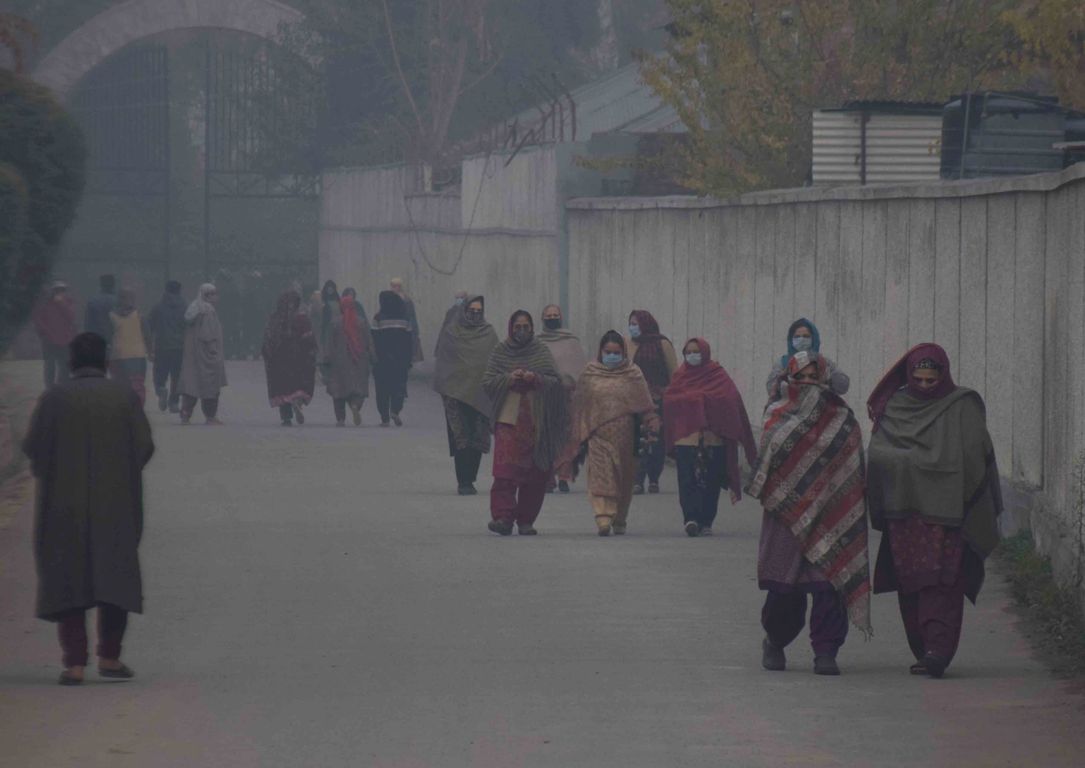by Khalid Bashir Gura
SRINAGAR: After decades of silent struggle in anonymity, when a wedding video on social media, Haye Haye Wasiey, got viral, Abdul Rashid became Reshma. In the subsequent days, this small-time Shehr-e-Khas tailor emerged as a strong voice for Kashmir’s third gender.
Within a few months, Rashid became a household name and heartthrob of millions. However, on a cloudy Sunday morning, Kashmir woke up to the news of Rashid’s demise after a brief illness.
As the third-gender community is demonized and stereotyped across the globe, Reshma was no different. However, Reshma’s rise to fame dovetailed with a glimmer of hope for the marginalised community who battle socio-economic, political, and mental health issues. Rashid was a key agent in getting the tribe wider social acceptance, especially on social media. Besides emerging as a singing talent, it was Reshma’s private life struggle from coming out of the closet to feeding the orphans that made Rashid Reshma a star and model human.
Community Concerns
“Our community must be led by example. We should get an education and step into different professions which the third-gender community is doing elsewhere in the world. If they can do it, why can’t we?” Reshma told the tribe members inside the lawns of the revered shrine of Hazratbal in a video after offering Friday congregational prayers. Most of Reshma’s audience agreed by clapping in their own way and proudly calling him their “leader” as wider social acceptance and love from people for Rashid’s talents raised hopes and mitigation of the minority community crisis.
The community has been struggling for existence as well as identity. Abandoned by their families for social stigma and shamed by society, the community sustains itself by relying on a few occupations like matchmaking, dancing, and singing at weddings, as well as working as makeup artists.
Kashmir scholar, Aijaz Bund has been fighting for their rights since 2011. He authored Hijras of Kashmir — a Marginalized Form of Personhood, the first ethnographic study of Kashmir’s trans people. The study found that intense harassment has caused mental health issues in them, including depression, suicidal tendencies, panic disorders, obsessive-compulsive disorder, and post-traumatic stress disorder. He found the new law (Transgender Persons [Protection of Rights] Act, 2019) did not impact their lives at all. They still have to undergo medical tests for transgender certificates to prove their identity and get access to social schemes (monthly pension of Rs 1,000).
Abdul Rashid to Reshma
According to Reshma, he was a female trapped inside a male body. “I wanted to be a girl; dress, walk, talk and live like a girl, however, it was due to family pressure I mastered in tailoring,” he said in one of his interviews. Due to mocking in school, Rashid dropped out of the fifth class. He was trained to sew clothes. His singing talent remained subdued as he was discouraged by the elders of the family who took umbrages at his singing.
“I was confined to home, as I became skilled in tailoring; customers soon began to trust me with trousseaus and other garments,” Reshma recalls in her neatly combed cropped hair with a smooth clean shaven face.

Born in an extended family of six brothers and two sisters, Reshma, had to rebel with his family to settle her inner conflicts as they were not accepting his gender identity. “Once my sister came to know about my singing at a wedding of my tailor master’s daughter and I was startled. She reprimanded me and enquired as to how I was allowed to sing when the tailor master didn’t allow socialising in own his own transgender community members. The neighbourhood ladies came to my rescue and told my sister that many great singers sing on Radio Kashmir,” he said
As Reshma’s rebellious acts discouraged any further dictation from family members, he soon started singing.
Still, he had not forayed fully into singing, that one day, he accompanied a sworn sister to Lal Bazar locality.
“As I had to deliver clothes, I got into a conversation with the family; their daughter insisted that I sing a song. The family acknowledged my talent and showered praise. One of their sons who was an engineer by profession passed a slip to her cousin,” Reshma said. “She smiled after reading it and I grew curious and enquired what was written in it.
“Reshma” she told me. This is how my public name came about when a boy saw me singing at a wedding. “I was beautiful those days,” he said and soon Abdul Rashid became popular by this name. “My mother disapproved of this title when I was referred to by this name and she always wanted me to be referred to as Abdul Rashid,” he narrates.
According to Reshma, the viral video of Hai Hai Wesai, Yaran hai tadepevnas turned the tide. As the song got hit, Reshma said he gained wider social acceptance and soon he had to stop to acknowledge love from people to capture selfies.
Melody, Innovation, Lockdown
As Rashid became a wedding-singing sensation, a lot of videos, some of them quite innovative in style and content, were captured and this led to a huge demand for Reshma. Interestingly many members individuals from the trans-tribe started reaching audiences through social media also and carved an audience and future potential clients for themselves.
Reshma uses the only musical instrument Tumbaknaer. To break the monotony, he devised new songs in which he uses different languages which, although carrying no meanings, offered a different soothing sensation and a lot of fun and pun of cosmopolitanism. Reshma was invited by various Kashmiri Pandits to sing at their weddings also and began attending concerts within and outside Kashmir.
Lockdown
Lately, when people were locked down during Covid19 lockdown, a song soon crossed lakhs of views when Reshma featured with Sanam Basit singing and dancing. The song had different lyrics and diverse themes, MTI studio wrote: here is our latest Kashmiri entertaining song to support all the people who are depressed and suffering from Covid-19. Off late, the song has 47 lakh views.
“During lockdown people closed doors to us. As marriages were canceled and people’s movements were restricted, match-making took a hit. Many of my colleagues had a family to support especially aged parents,” Reshma said. There is less work, Reshma said even in tailoring now.
Personal Struggle
Reshma’s identity is not confined to weddings and singing but from confronting catcalling and mocking to coming out of the closet and becoming a voice for the community.
“I always feared mocking by youth on roads and sometimes I have had to change routes to avoid harassment. But now, there is a visible change. People have started seeing us as humans and worthy of respect,” he said.
Reshma realized the quantum of familial responsibilities and proved to be a model human being when his younger brother, died young, leaving behind four orphans. Soon working hard, Reshma worked in both seasons. In summer, it was singing at weddings and in winter, he went back to the profession: of tailoring. Incidentally, he had made his debut appearance at the wedding of the same brother who did not survive later and whose family he has adopted and is supported by Reshma.
As many had doubted his ability to take care of orphaned kids, he proved societal perceptions wrong. “The elder daughter completed her post-graduation, the son engineering, and other nephews are still pursuing education,” he said. According to them, Reshma has left no stone unturned in ensuring that they get the best facility, the best education, and the best food, within the available resources. His last wish was to marry these kids and go for the Mecca pilgrimage.
Forgotten Figure?
The demise of the ballad maker triggered a mourning in virtual space. People from different walks of life paid last rites. After fame catapulted him into people’s hearts, a shock awaited when Reshma was diagnosed with cancer. The wedding sensation faded and became a forgotten figure. Society gave him a decent funeral early on Sunday.
















beautifully written